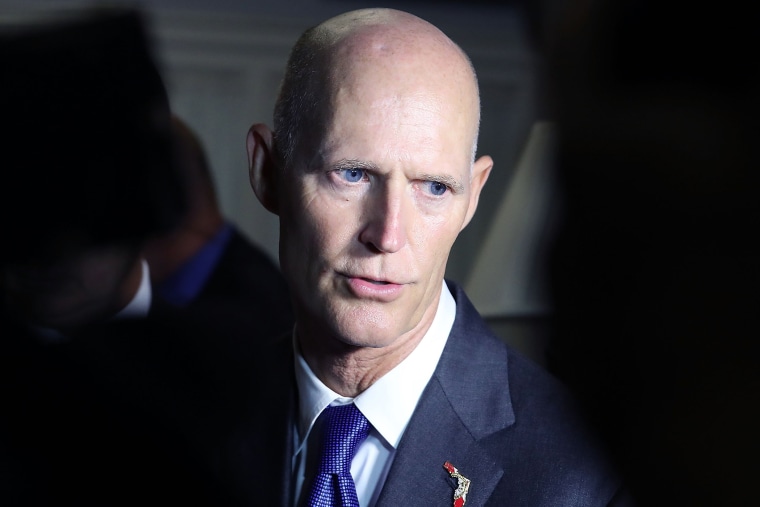Florida Gov. Rick Scott (R) is in the middle of one of the nation's most competitive and unpredictable U.S. Senate races, and partisan control of the entire chamber may rest in the hands of Sunshine State voters. Naturally, the Republican is looking for any possible advantage to encourage Floridians to send him to D.C.
And late last week, Scott put a spotlight on an issue that should, in theory, matter quite a bit.
"Florida hasn't received its fair share of federal transportation funding for decades. That's wrong, and as your Senator I'll fight to secure real results for our state."
The governor may not have thought this one through -- because when Florida was poised to receive an increased share of federal transportation funding, it was Scott who said he didn't want it.
Let's take a stroll down memory lane. Just five weeks after taking office in 2011, the newly elected Republican governor made a decision that even his allies found difficult to defend. Federal officials had already allocated more than $2 billion for a high-speed rail project linking Tampa and Orlando, and with Florida struggling at the time with a 12% unemployment rate, the investment meant thousands of jobs and new economic development for the Sunshine State.
The Republican governor, however, refused to accept the money, telling officials to spend the federal transportation dollars elsewhere.
As readers who've been with me a long while may recall, even Republicans were disgusted. Rep. John Mica (R-Fla.), then then-chairman of the House Transportation Committee, said the governor's decision "defied logic." State Senator Jack Latvala (R), the then-chairman of Florida's Senate Transportation Committee, said Scott "cut off our nose to spite our face."
Democrats were even more incensed. Tampa Mayor Pam Iorio told reporters, "This is one of the worst decisions that I have ever seen in my 26 years of public life. This is a decision that is clearly based on ideology and not on the facts.... Why in the world would the governor take $2.3 billion worth of investment in our great state and hand it to another state? Why would any governor do that?"
More than seven years later, the Hartford Courant published an editorial -- which also ran in the Miami Herald -- thanking Scott for increased transportation funding in Connecticut. The Hartford Line rail project connecting Hartford to New Haven probably wouldn't exist if Florida's governor hadn't rejected those federal funds.
As it turns out, Scott has decided he now wants high-speed rail connecting Tampa and Orlando after all, and he's thrown his support behind a pending proposal. The new project won't receive federal funding -- that (ahem) train has left the station -- and it won't be nearly as fast as the project Scott helped kill early on in his tenure, but it will be financed by a private company in south Florida that's contributed to the governor's campaigns. There are also some complex financial connections between the company's corporate parent and investments from Scott's wife.
And while those details certainly matter, there's no avoiding the straightforward conflict between Rick Scott's new campaign promise (securing new federal transportation funding for Florida) and Rick Scott's record (giving away federal transportation funding for Florida).
